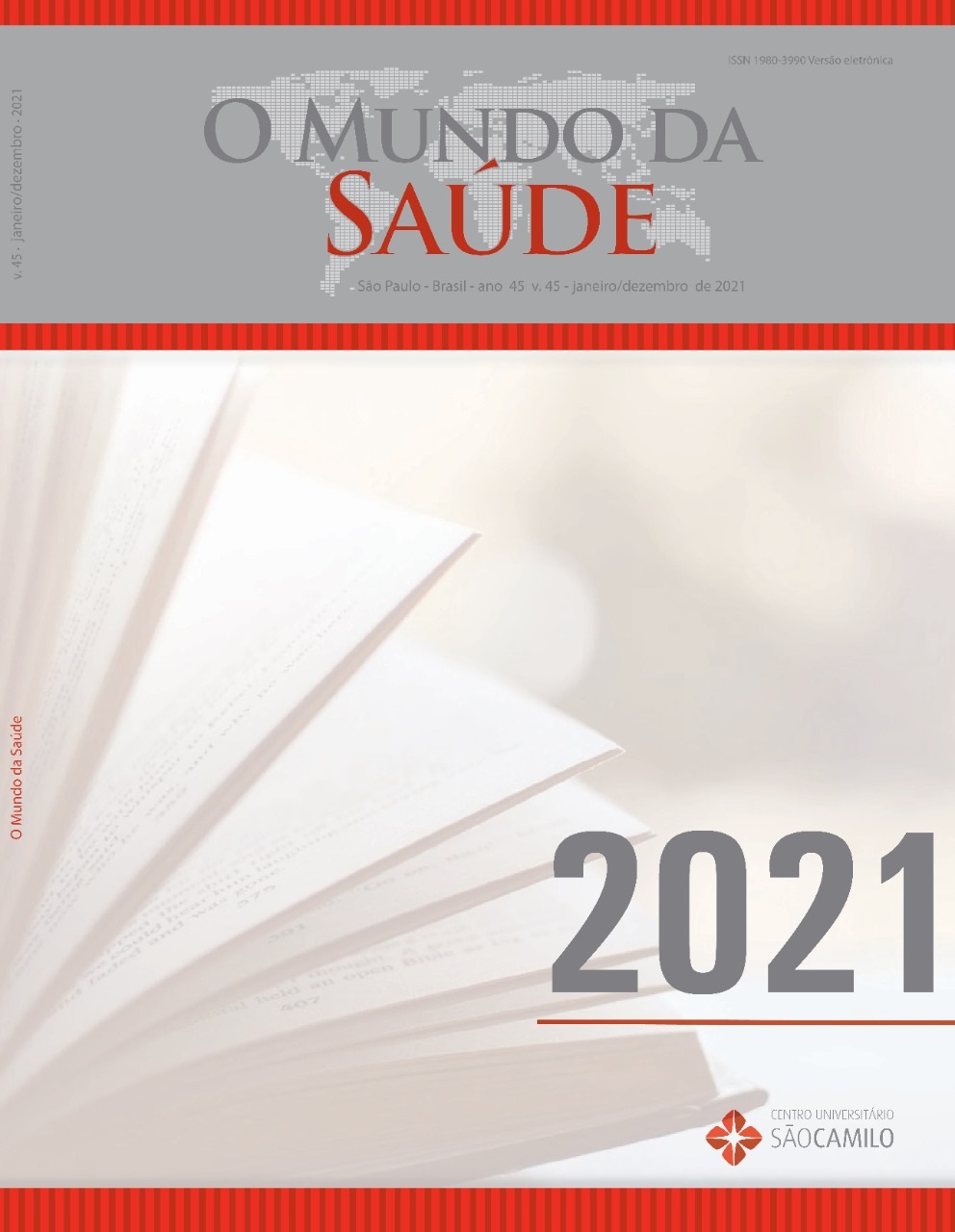Subjective well-being and self-esteem of people undergoing hemodialysis
DOI:
https://doi.org/10.15343/0104-7809.202145110119Keywords:
Well-being, Self-image, Chronic Kidney Disease, Hemodialysis, Quality of lifeAbstract
Chronic Kidney Disease is progressive and permanent, causing functional losses and psychological interference that culminate under personal exhaustion and imply a change in daily life. The objective of the study was to assess the levels of subjective well-being and self-esteem of people undergoing hemodialysis, and to identify the relationship between these constructs. This was a cross-sectional quantitative study, involving 152 people, in a Nephrology Center. Data were collected using a sociodemographic survey and the Subjective Well-Being and Self-Esteem Scales, respectively. Pearson's Correlation Coefficient was applied to study the association of subjective well-being with self-esteem; for association with sociodemographic variables, the following statistical tests were applied: Student's T test; Analysis of Variance, Spearman's Correlation Coefficient. There was a predominance of males (65.1%), average age 55.3 years old (± 13.6), married (36.2%) with a family income of 1 to 5 minimum wages, and complete high school education (36.9%). In relation to subjective well-being, there was a satisfactory level of positive feelings, and low expression of negative feelings, and a higher level of satisfaction with life. The average self-esteem score was 29.63, indicating satisfactory indices and significant correlations. A strong, significant, and proportional positive correlation was found. The greater the person's subjective well-being, the greater their self-esteem was, and an association with sex, age, marital status, family income, and education level was identified. Family income was related to all dimensions of the constructs.
Downloads
References
2. Freitas EA, Freitas EA, Santos MF, Félis KC, Moraes Filho IM, Ramos LSA. Assistência de enfermagem visando a qualidade de vida dos pacientes renais crônicos na hemodiálise. Rev Inic Cient Ext. 2018;1(2):114–121. Disponível em: https://revistasfacesa.senaaires.com. br/index.php/iniciacao-cientifica/article/view/59/24
3. Hartwig SV; Sousa Junior AL; Ignotti E. Medications for hypertension of hemodialysis patients in Cáceres - Mato Grosso, Brazil. Mun da Saú. 2018;42(1):158-180. DOI: 10.15343/0104-7809.20184201158180.
4. Gomes MCS; Tolentino TM; Maia MFM; Formiga NS, Melo GF. Verificação de um modelo teórico entre bem-estar subjetivo e autoestima em idosos brasileiros. Rev Bra Ciên e Mov. 2016;24(2):35-44. DOI:10.18511/rbcm.v24i2.526.
5. Gomes HLM, Monteiro IOP, Pina RMP, Toledo NN, de Almeida GS. Enfrentamento, Dificuldades e Práticas de Autocuidado de Pacientes com Doença Renal Crônica Submetidos à Diálise Peritoneal. Rev Paul Enferm. 2019; 30: 1-12. DOI:10.33159/25959484. repen.2019v30a1.
6. Rocha MAM, Barata RS, Braz LC. O bem-estar de pacientes renais crônicos durante o tratamento com hemodiálise e diálise peritoneal. REAS/EJCH; sup (21), e670. DOI: 10.25248/reas.e670.2019.
7. Chaves E de CL, Carvalho TP de, Carvalho CC, Grasselli C da SM, Lima RS, Terra F de S, et al. Associação entre Bem-Estar Espiritual e Autoestima em Pessoas com Insuficiência Renal Crônica em Hemodiálise. Psicol Reflex Crit. 2015;28(4):737–43. DOI:10.1590/1678- 7153.201528411.
8. Andrade SV, Sesso R, Diniz DH de MP. Desesperança, ideação suicida e depressão em pacientes renais crônicos em tratamento por hemodiálise ou transplante. J Bras Nefrol. 2015;37(1):55-63. DOI: 10.5935/0101-2800.20150009.
9. Santos VFC dos, Borges ZN, Lima SO, Reis FP. Percepções, significados e adaptações à hemodiálise como um espaço liminar: a perspectiva do paciente. Interface. 2018;22(66):853–863. DOI: 10.1590/1807-57622017.0148.
10. Albuquerque AS, Tróccoli BT. Desenvolvimento de uma escala de bem-estar subjetivo. Psic: Teor e Pesq. agosto de 2004;20(2):153– 64.DOI: 10.1590/S0102-37722004000200008.
11. Hutz, C.S.; Zanon, C. Revisão da adaptação, validação e normatização da escala de autoestima de Rosenberg. Rev Aval Psicol [Internet]. 2011. 10(1): 41-49. Disponível em: http://pepsic.bvsalud.org/scielo.php?script=sci_arttext&pid=S1677-04712011000100005=pt
12. Hair JF, organizador. Multivariate data analysis. 7. ed., Pearson new internat. ed. Harlow: Pearson; 2014. 734 p. (Pearson custom library).
13. Marôco J. Análise Estatística com o SPSS Statistics.: 7a edição. ReportNumber, Lda; 2018.
14. Coutinho M da P de L, Costa FG, Coutinho MDL. Bem-estar subjetivo e resiliência em pessoas com Diabetes Mellitus. Est Interdiscip Psicol. 2019. 10 (3): 43-59. DOI: 10.5433/2236-6407.2019v10n3p43.
15. Passareli-Carrazzoni P, Silva JA da. Bem-estar subjetivo: autoavaliação em estudantes universitários. Estud psicol. 2012;29(3):415– 25. DOI: 10.1590/S0103-166X2012000300011.
16. Frazão CMF; Tinôco JDS; Fernandes MICD; Macedo BM; Freire, MD; Lira, ALBC. Modificações corporais vivenciadas por pacientes com doença renal crônica em hemodiálise. Rev Enferm Glob. 2016. 15(3): 300-310. Disponível em: http://scielo.isciii.es/pdf/eg/ v15n43/pt_administracion3.pdf
17. Noronha APP, Martins D da F, Campos RRF, Mansão CSM. Relações entre afetos positivos e negativos e os cinco fatores de personalidade. Est Psico. 2015;20(2):92–101. DOI: 10.5935/1678-4669.20150011.
18. Gaspar T, Balancho L. Fatores pessoais e sociais que influenciam o bem-estar subjetivo: diferenças ligadas estatuto socioeconômico. Ciênc saúd colet [Internet]. 2017;22(4):1373–80. DOI: 10.1590/1413-81232017224.07652015
19. Mendonça CM, Pereira WAGS, Lenzi RV. Influência econômica na Qualidade de vida dos Pacientes Portadores de doença renal crônica em tratamento no Centro de Hemodiálise de Cacoal. Rev Elet. FACIMEDIT. 2017. 6(1):53-54.
20. Silva DG da, Dell’Aglio DD. Avaliação do bem-estar subjetivo em adolescentes: Relações com sexo e faixa etária. Análi Psicol. 2018;36(2):133–43. DOI: 10.14417/ap.1218.
21. European Commission. Directorate General for Justice and Consumers., Fondazione Giacomo Brodolini., Istituto per la Ricerca Sociale., Enege. Gender gaps in subjective wellbeing. [Internet]. LU: Publications Office; 2015. Disponível em: https://op.europa.eu/ en/publication-detail/-/publication/e317570e-0139-11e6-b713-01aa75ed71a1.
22. Feldman DB; Kubota M. Esperança, autoeficácia, otimismo e desempenho acadêmico: construtos distintos e níveis de especificidade na previsão da média de notas da faculdade. Aprendizagem e diferenças individuais. 2015; 37:210–6.
23. Scorsolini-Comin F, Fontaine AMGV, Barroso SM, Santos MA dos. Fatores associados ao Bem-Estar Subjetivo em pessoas casadas e solteiras. Estud psicol. 2016;33(2):313–24. DOI: 10.1590/1982-02752016000200013.
24. Santana VS, Gondim SMG. Regulação emocional, bem-estar psicológico e bem-estar subjetivo. Est Psicol. 2016; 21(1):58-68. DOI: 10.5935/1678-4669.20160007.






























